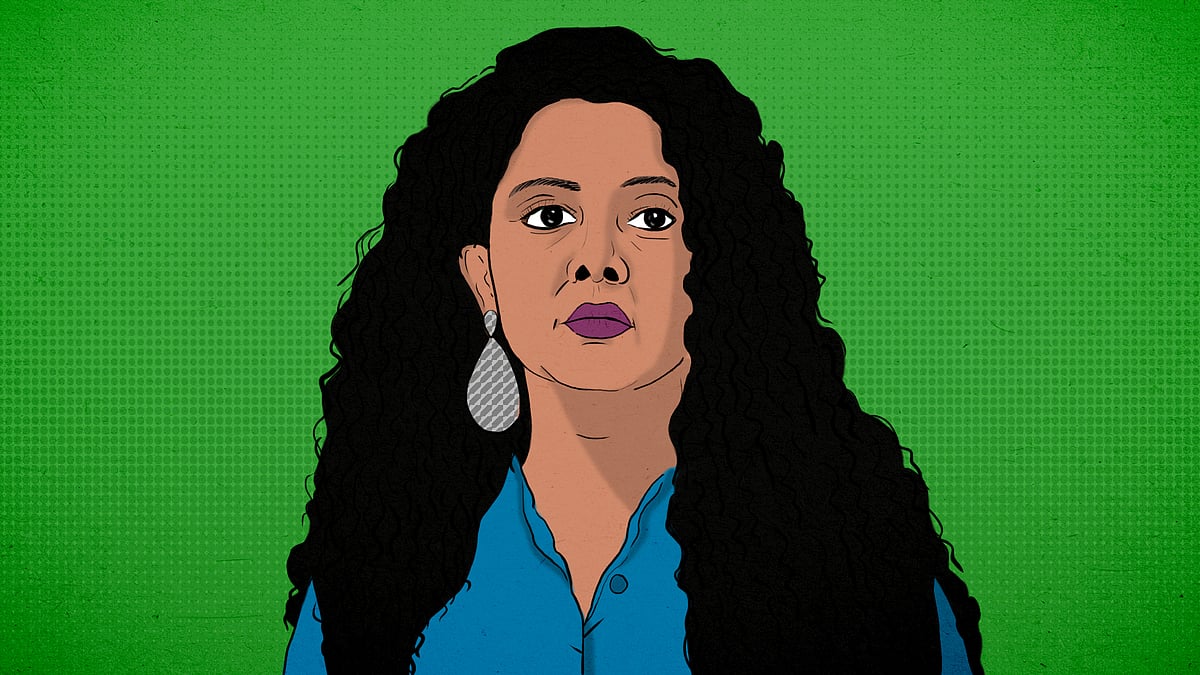‘History will be kind to us’: Rana Ayyub receives US press freedom award
She is at the centre of a storm in India, where violence against journalists is at an all-time high, said the US National Press Club earlier this year.
“Thank you for making me feel less alone and isolated,” said Washington Post columnist and Indian journalist Rana Ayyub in her speech after receiving the John Aubuchon Press Freedom award – the highest honour conferred by the US National Press Club.
The author of Gujarat Files: Anatomy of a Cover Up was named as an awardee in July and the Fourth Estate Award Gala took place on Wednesday in Washington DC.
Announcing the award earlier, the club noted that Rana was the first Indian journalist to receive the award. “Violence against journalists in India is at an all-time high. In the last 5 years some 18 journalists have been murdered in India, making it one of the deadliest countries in the world for journalists, according to Reporters Without Borders. And this year the trend of arrests and detention of journalists in India appears to be accelerating. At the center of this storm stands Rana Ayyub and the National Press Club stands with her.”
Posting a video of her acceptance speech on Twitter, the journalist wrote, “This evening I received the John Aubuchon honour in a room full of the country’s finest. I dedicated the award to Shirin Abu Akhleh and to every single journalist fighting an isolating battle. History will be kind to us.”
“The day they called me to announce that I was the recipient of the Aubuchon honour this year, I was in hiding because one of my colleagues, a journalist, a friend of mine who is a co-accused in a case with me, was behind bars in a case for a tweet he wrote four years ago. Ironic, isn’t it, that people who preside over genocides are feted by the world but those who speak truth to power have been asked to stay low profile? That’s a sign of the times we live in.”
Dedicating the award to Palestinian-American journalist Shirin Abu Akleh, who was allegedly shot in the head by Israeli forces while covering an Israeli raid in Jenin in the occupied West Bank in May, Rana said, “She didn’t have to be murdered...in her life and her death, Shirin exposed the hypocrisy and dual standards of the world on human rights. And that’s the truth we all need to accept.”
The IDF had in September said there was a “high possibility” that Shirin was accidentally shot by its soldiers but that it did not intend to prosecute the soldiers involved. While Al Jazeera, who the journalist was associated with, has approached the International Criminal Court, the US has opposed the move.
Talking about atrocities against Muslims in India, and the alleged complicity of BJP governments, Rana said, “For this very speech, my country will tell me I am unpatriotic. I believe that I love India more than any other country in the world...which is why I’m here, risking everything, because this could potentially be my last trip out of India...It’s a story not just about the persecution of Muslim minorities. It’s a story of India, the world’s largest democracy sliding into a state of fascism.”
The journalist said there might be a non-bailable warrant against her soon over a case against her.
Earlier this year, she was stopped at the Mumbai airport before her flight to London to deliver a speech on the intimidation of journalists. She alleged that summons by the Enforcement Directorate “very curiously” reached her email inbox only after she was halted at immigration.
 Did Rana Ayyub’s Covid fundraisers violate FCRA?
Did Rana Ayyub’s Covid fundraisers violate FCRA?NL Digest
A weekly guide to the best of our stories from our editors and reporters. Note: Skip if you're a subscriber. All subscribers get a weekly, subscriber-only newsletter by default.
